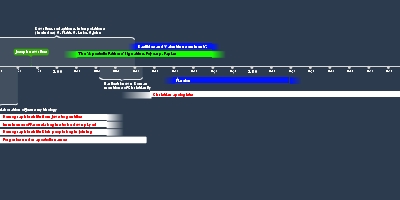Judaizing vs. Pauline sects | Anti-Pauline sentiment | Ebionites (1 gen 50 anni – 31 dic 249 anni)
Descrizione:
This is the principal source of conflict within the Jesus movement attested in the letters of Paul as well as in the dramatic novelization of Paul’s life that is the back half of Acts. Whereas the original followers of Jesus by definition considered themselves to be operating within Judaism, and almost certainly advocated adherence to some version of its religious “law”, Paul’s sect opened the door to gentiles being able to participate in the Jesus cult without needing to adhere to Jewish religious customs such as kosher, Sabbath, or (most crucially) circumcision. This brought him into repeated conflict with Judaizing missionaries operating in the same eastern Mediterranean environs as he was, and even set him at odds with the leading lights of the movement in Jerusalem (Cephas, James the brother of Jesus, other “super-apostles”). Paul described this disagreement as so pronounced that it amounted to “another Jesus” being preached, and we can see from his letters that it led to multiple Jesus clubs being uncertain about who they should be taking direction from.Pauline affinities:
> Disputes over maintaining Sabbath observance are attested towards both the beginning and the end of the time period in question (Romans, Ignatius)
> Disparaging remarks aimed at Judaizers during the era of institutionalizing Christianity imply that they continued to be active even after the probable destruction of the Jerusalem contingent during the Roman-Jewish War (1 Timothy?, Titus, Ignatius).
Judaizing affinities:
> Hebrews appears to explicitly posit Jesus as the Jewish messiah
> James contains striking pushback against the Pauline doctrine of salvation via faith alone (James); and possibly Paul’s overall tone
> The Gospel of Matthew contains strong pushback against the abandonment of Jewish religious law/customs
> Revelation fires broadsides against a “synagogue of Satan”, those who “say that they are Jews but are not”, which may well be referring to author’s understanding of the Pauline Jesus clubs. Ephesus is listed as having “tested those who claim to be apostles but are not, and have found them to be false”. “Paul” in the pastorals specifically targets Ephesus and Asia for having deviated in doctrine or broadly turned away from him.
After almost a century during which the literature seems to exclusively pay homage to Paul, Irenaeus mentions the existence of the Ebionites, adoptionist Jewish Christians who use the gospel of Matthew, follow the law, and repudiate Paul. Around this same time (180-220 CE), the Kerygmata Petrou appears and contains a striking and very targeted polemic against Paul and his claims to apostleship. The overall affinity of the work is unclear. It argues that the Jewish scriptures contain truths mingled with falsehoods, and dismisses the gnostic concepts of a creator god separate from the Father, and a creation undertaken in ignorance.
Aggiunto al nastro di tempo:
Data:
1 gen 50 anni
31 dic 249 anni
~ 200 years
